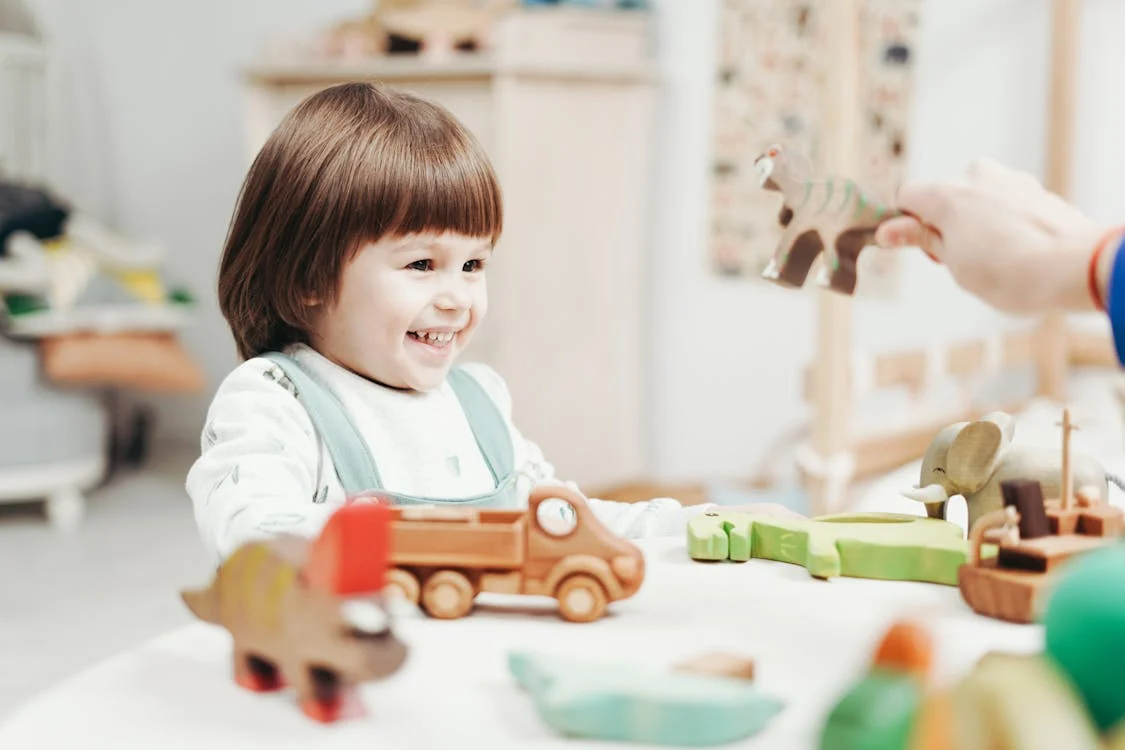Toys that are good for your child and the planet. Rent now
Every Child is Unique: Tailoring Toys to Your Child's Development
Every Child is Unique: Tailoring Toys to Your Child's Development

12 May 2024
By
admin
As parents, we want to provide our children with the best possible toys to support their growth and development. But with so many toys on the market, it can be overwhelming to choose the right ones. One common misconception is that toys should be categorised by age. However, this can be misleading, as children develop at different rates.
The Importance of Individualised Play
Developmental psychologist Jean Piaget emphasised that while children may reach similar milestones, the timing can vary widely. This means that a child who is 18 months old may not have the same developmental abilities as another child who is also 18 months old.
Research confirms that children have unique developmental trajectories influenced by various factors, including their environment and personal experiences. This highlights the importance of considering each child's individual needs when selecting toys.
The Dangers of Age-Based Toys
Toys designed for broad age ranges can frustrate children who are at different stages of development. If a toy is too advanced, it may lead to disengagement rather than learning. Conversely, if a toy is too easy, it may not provide enough challenge to keep a child interested.
Let's take an example:
Imagine a 14-month-old child who is learning to walk. If you give them a pull-along toy designed for 12-18 months, it might be too easy for a child who has already mastered walking. On the other hand, if the child is still struggling to walk independently, the toy might be too challenging.
How to Support Your Child's Development
To ensure your child is getting the most out of their toys, it's important to consider their individual developmental stage. Here are some tips:
- Observe your child's interests: Pay attention to what your child enjoys doing and choose toys that align with their interests.
- Consider their developmental milestones: Research your child's developmental stage and select toys that are appropriate for their age and abilities.
- Look for toys with multiple levels of difficulty: This will allow you to adjust the toy to your child's changing needs.
- Don't be afraid to experiment: Try different toys and see what works best for your child. You can even consider renting toys to explore a variety of options without committing to a purchase.
- Encourage open-ended play: Open-ended toys allow children to explore and learn at their own pace.
- Limit screen time: Excessive screen time can hinder children's development. Encourage physical activity and imaginative play.
By following these tips, you can help your child develop their skills and reach their full potential. Remember, every child is unique, and it's important to support their individual needs and interests.
By clicking "Accept" you consent to us and our advertising partners using cookies and similar technology on this site and around the web to collect and use personal data. These changes will be applied across the internet. Please note, Live Chat requires cookies to be enabled.


